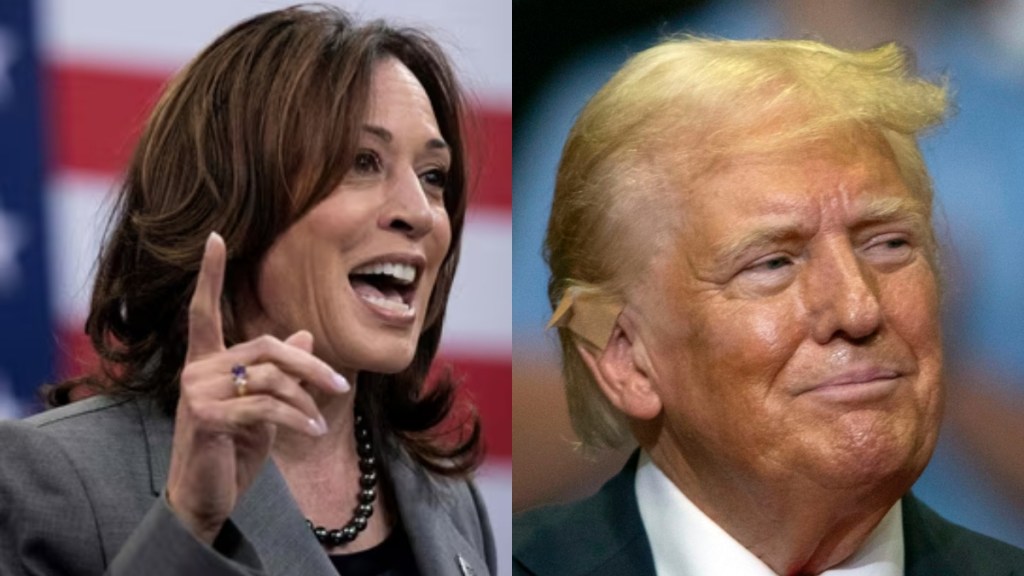By Rajesh Mehta
The voters of the United States will elect their new president in November 2024, and its implications will undoubtedly go beyond the US borders, including India and its relations with the USA. In the race for the White House between Republican Donald Trump and Democratic contender Kamala Harris, there will be two different approaches from the domestic and global lens of politics. However, regarding US-India relations, the outcome of the elections is unlikely to cause a drastic change to the long-term growth of this strategic partnership, and it will only grow, since technology, talent, and trust are an unbreakable bond.
A return to the White House by Donald Trump may herald the beginning of a pivot towards protectionism, in line with his “America First” agenda. This would most affect India in terms of trade and technology. Renegotiated terms of trade and highly controlled immigration may even impact Indian IT services and talent exchange with the US. Tough H1-B visa policies may also strip away some skilled Indian workers migrating into the US, an area of US-India cooperation that has long been recognized as strategic to economic development.
The Trump card
Even though defence ties, especially under the QUAD, grew significantly in the first term of Trump regarding common concerns about China, his unpredictable policies and protectionist stance may overshadow these security gains. Under the return of Trump 2.0, the Eagle might push the Elephant to purchase more American Goods, and Defence equipment and machinery while maintaining a tough stance against the Dragon forces. Also, Trump is a businessman and can be regarded as a geo-political arsenal, and the penal tariff denial scenario (removal of approximately $6 billion worth of Indian goods from the US Generalised System of Preferences or GSP scheme).
There is also the possibility that Trump’s unpredictable foreign policy stance can impact India’s balancing act between Russia and the USA. However, Trump is historically one such US leader who has not confronted Russia much, particularly about the ongoing Russia-Ukraine war, and this could indirectly benefit India.
The Harris way
Harris’s approach towards India-US relations would be slightly different from Trump’s. A Kamala Harris presidency would diminish the danger of rising US protectionism. A Democrat and a follower of the Biden multilateral approach, Harris will benefit India, particularly in its trade, talent exchanges, and tech exchanges. Her Indian heritage could also provide an added impetus for tighter bilateral ties.
She has been a vocal advocate of democracy and human rights, which means she might bring sensitive issues while dealing with India including religious freedom, rights of minorities, and press freedom. For international relations under Kamala’s presidency, India might have to follow a wait-and-watch attitude particularly due to her not-so-in-depth exposure to the same.
Also read: Severe skill shortage in Europe: Can India be the answer?
Her government likely would be pro-globalization and pro-immigration reform, and Indians working in tech could benefit from her administration. Even though the QUAD will continue to play a vital role in balancing China, Harris is less likely to be unpredictable regarding trade and immigration than Trump was.
Industries are transforming with new and evolving technologies relating to AI, cybersecurity, and digital transformation. This means that US-India collaboration will only continue deepening. Projects such as the US-India initiatives on Critical and Emerging Technologies or i-CET drive this into becoming a reality while focusing on more critical areas like quantum computing and 5G.
India also retains considerable strengths in its high-tech workforce, for example, Indian engineers and entrepreneurs are increasingly playing key roles in Silicon Valley and beyond. An increasing Indian diaspora in the US only adds to the confidence. That is partly due to shared democratic values and cultural bonds.
The QUAD of the US, India, Japan, and Australia has been manifesting as the most important forum in advancing the collective interests in the Indo-Pacific. Elections in 2024 would have minimal detrimental effects on this initiative as both Trump and Harris appreciate the strategic value of balancing China’s rising power in the region. The QUAD summit will bring the four nations together to discuss collaboration on security, economic, and technology issues and is a precursor toward building that kind of relationship.
In this election, due to swing states, the Indian diaspora is going to play a key role in deciding the outcome of the election. Regardless of the President, the Indian diaspora may later be a great factor in further strengthening the relationship between the two nations.
Trump’s possible return may carry protectionist risks and Harris may provide a more stable path, but the US-India relationship will still grow. Technology will be the driver, talent will bridge the gap, and trust will bind both countries together. The election may shape the nuances of this relationship, but beneath it, those factors that are already in place will ensure it is strong and on track.
(The author is an International Affairs expert working on areas of Market Entry, Innovation & Public Policy. Views expressed are the author’s own and not necessarily those of financialexpress.com.)

